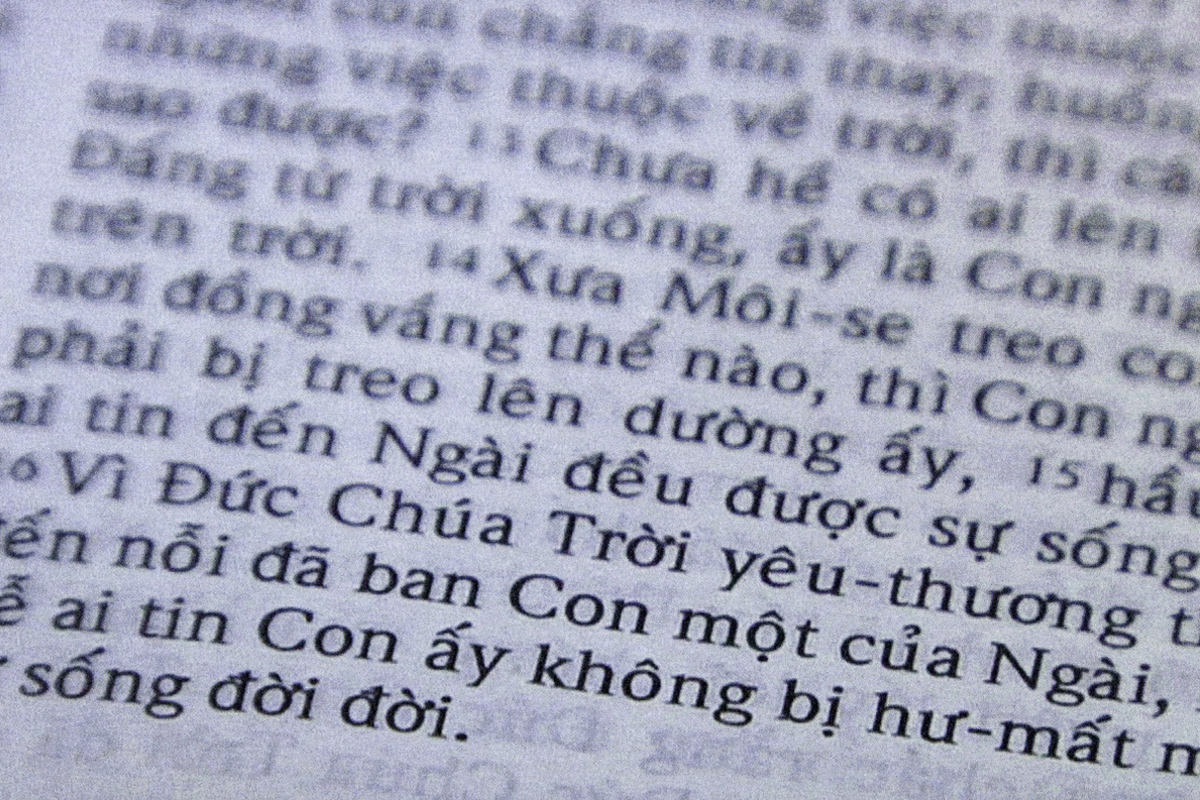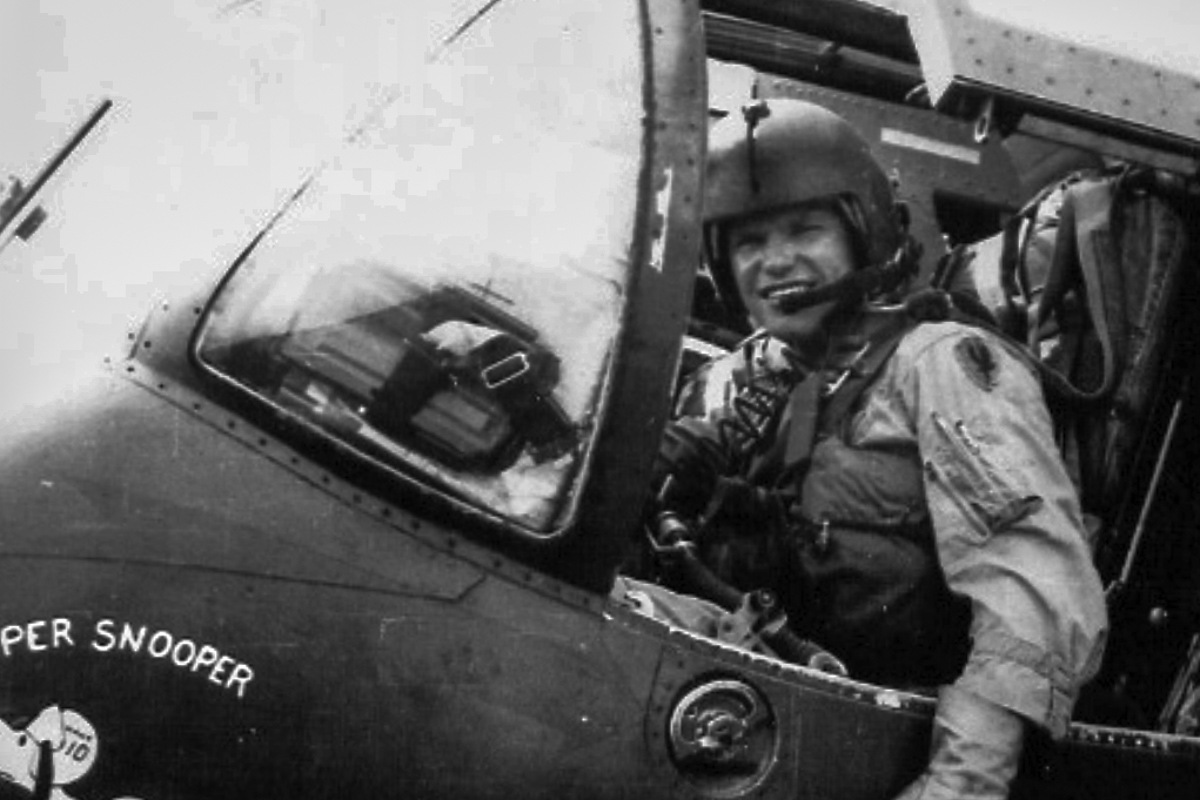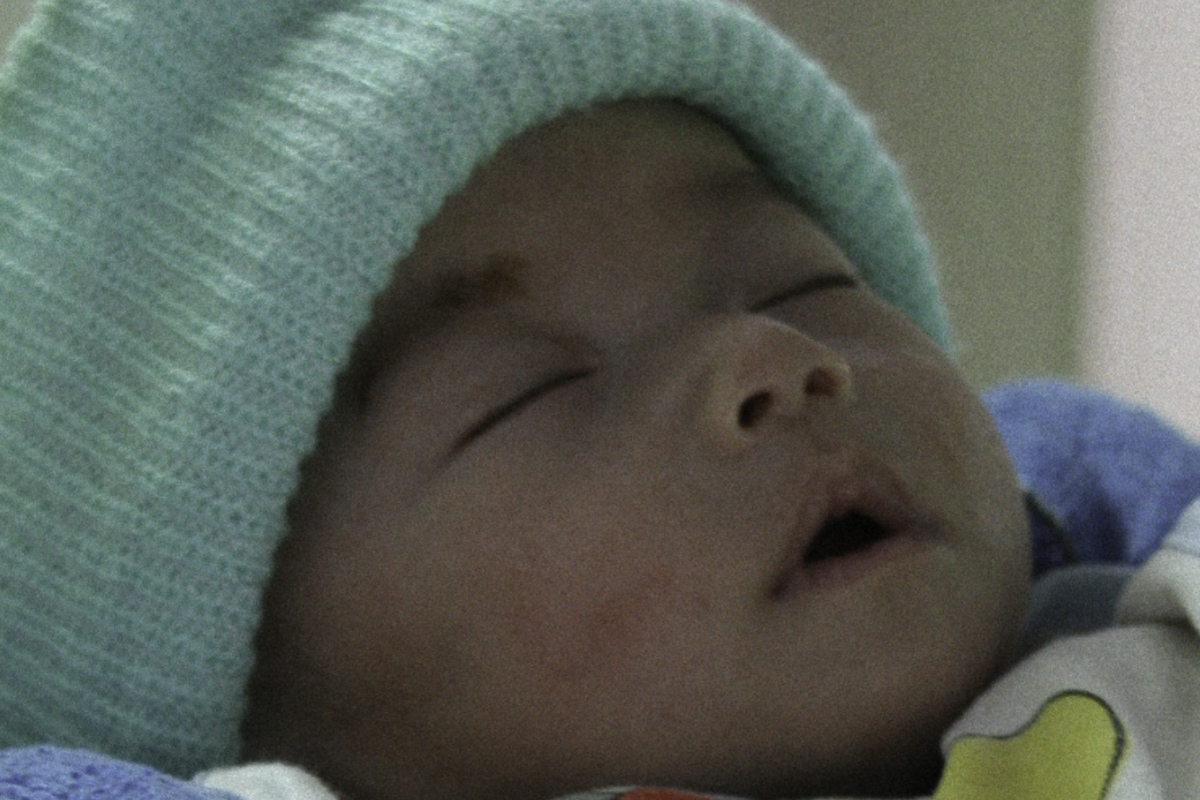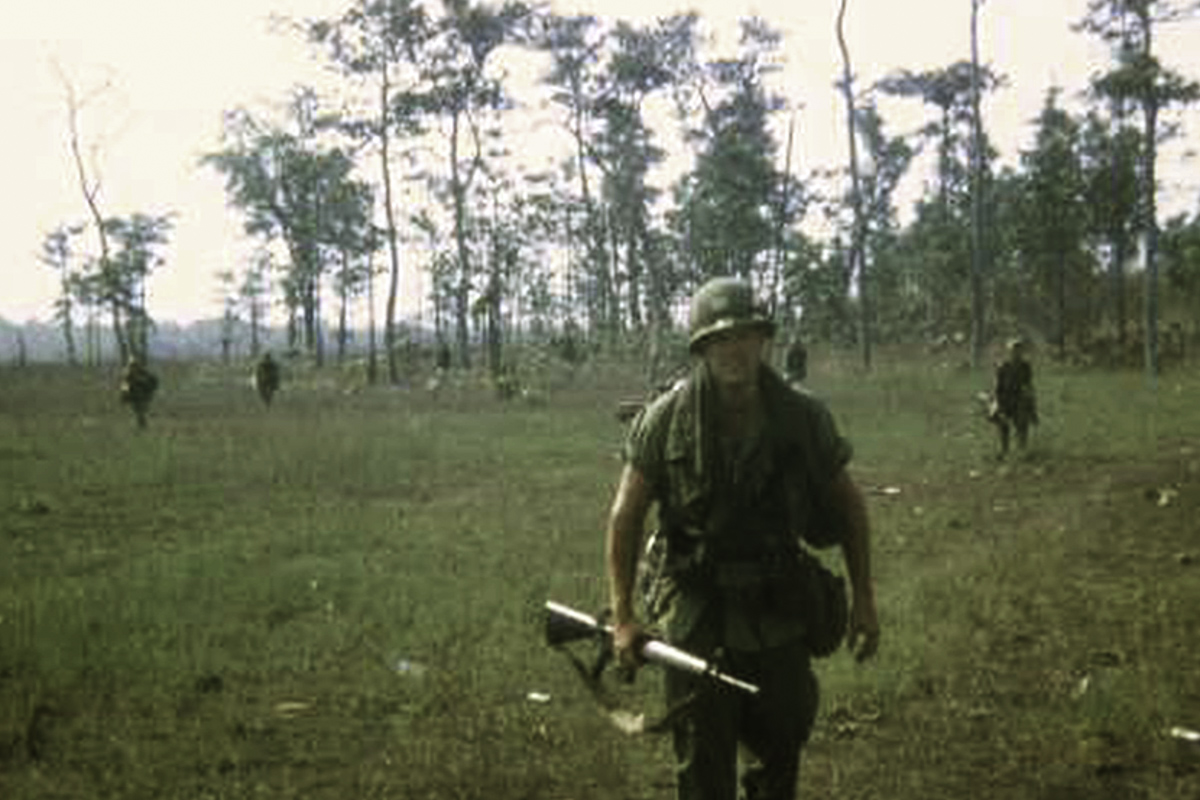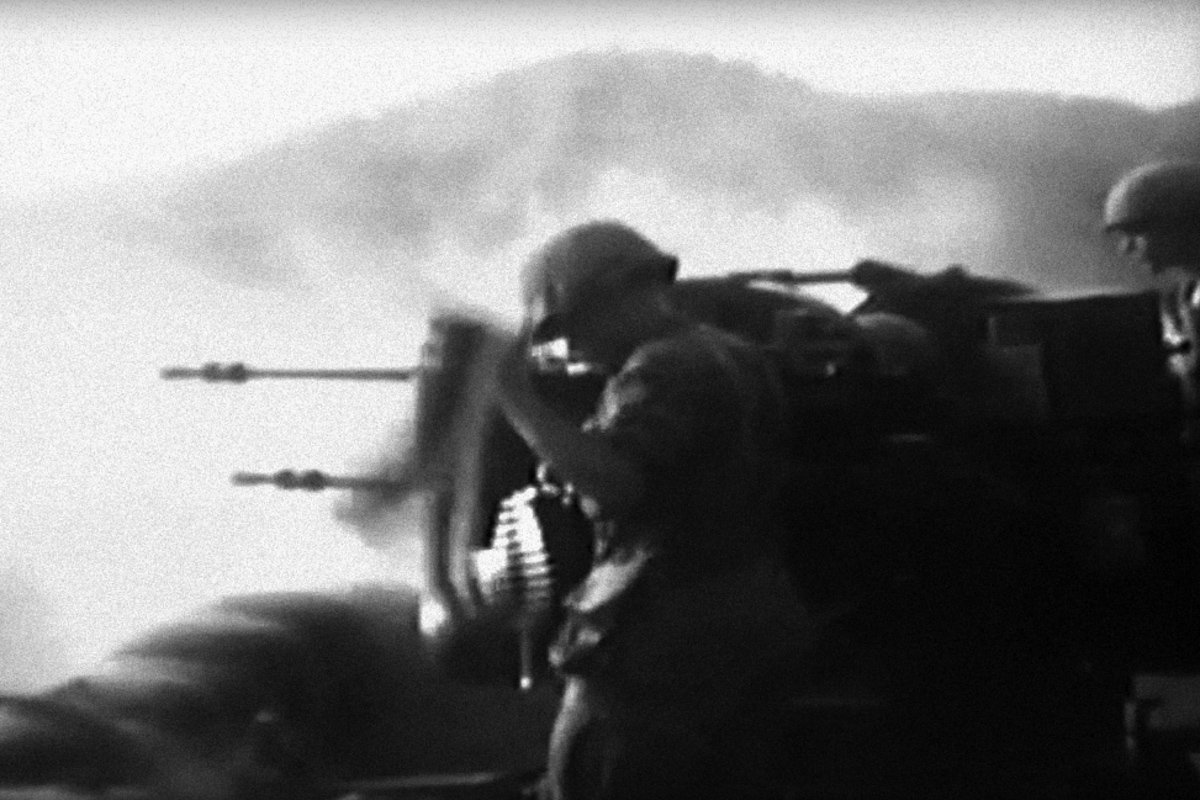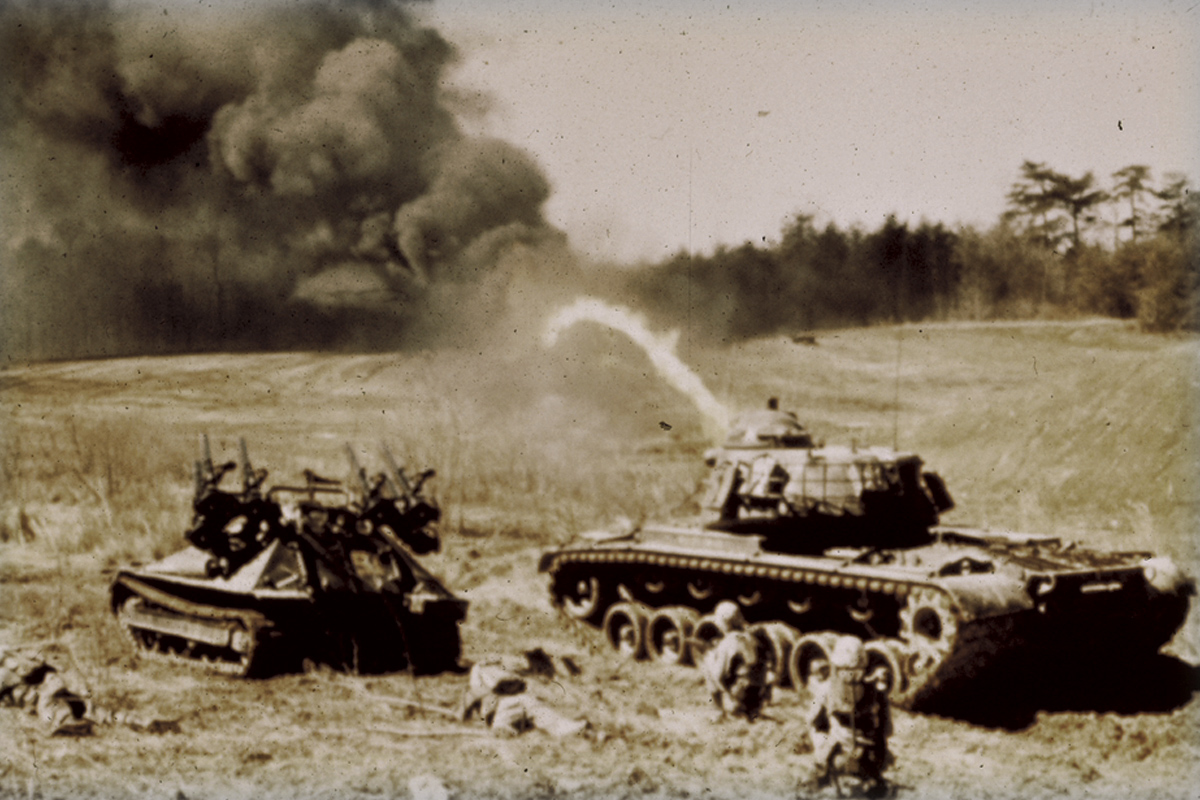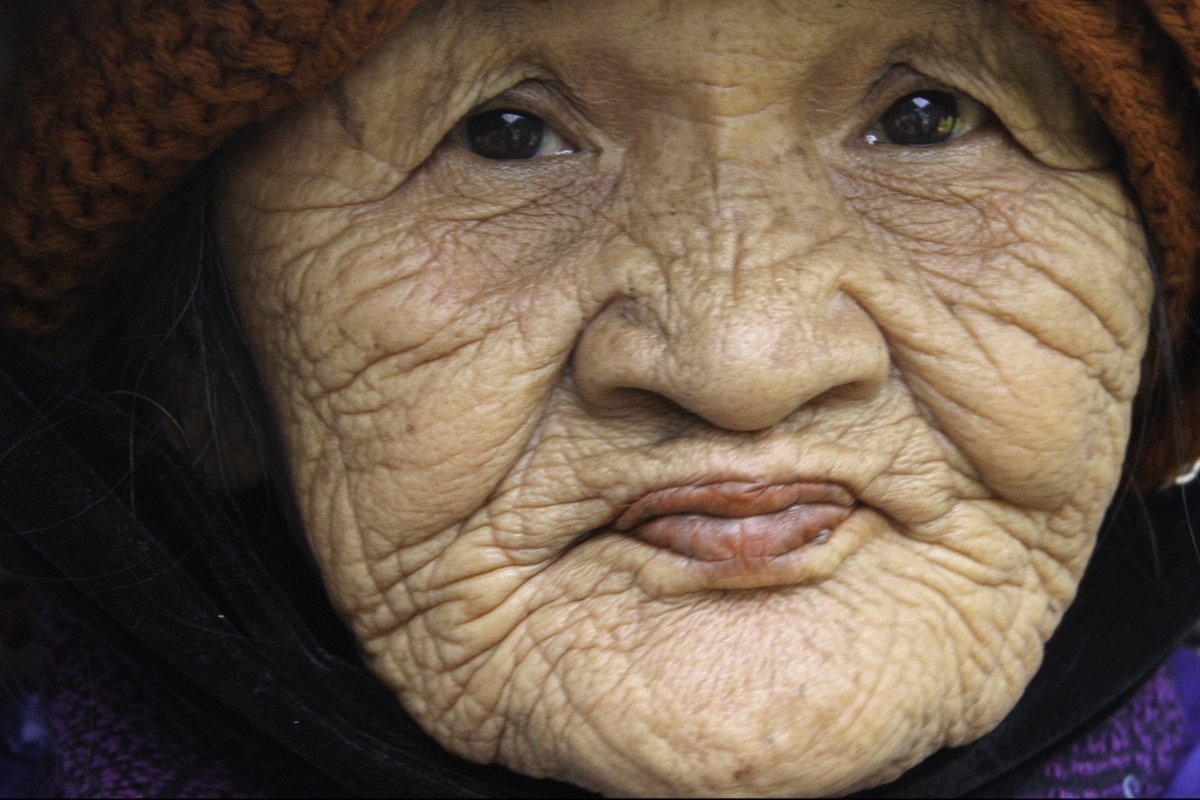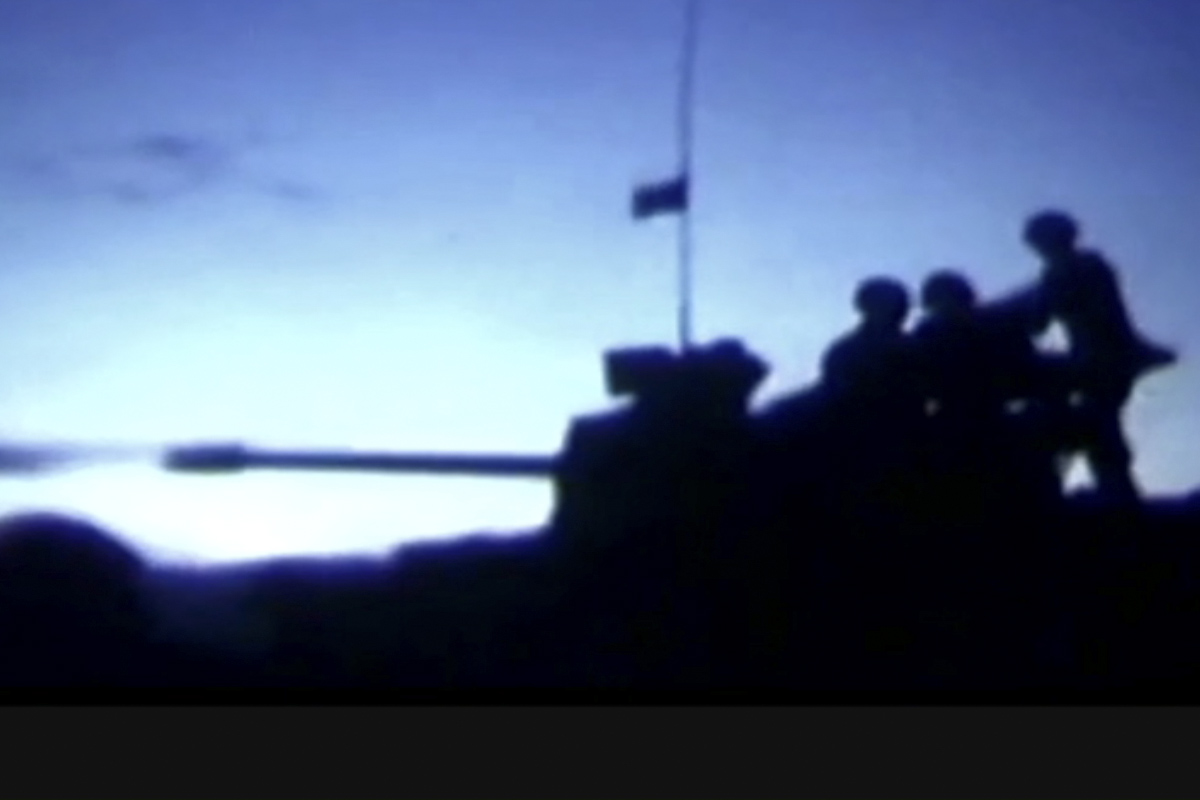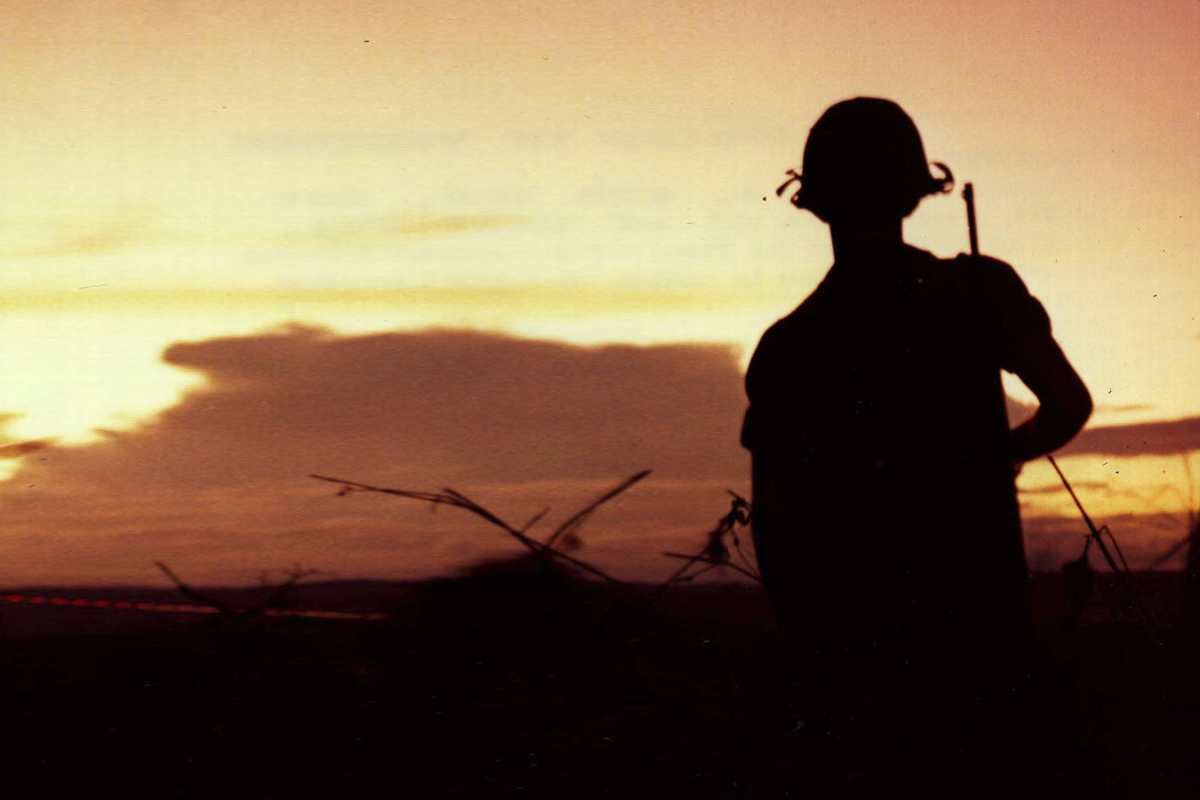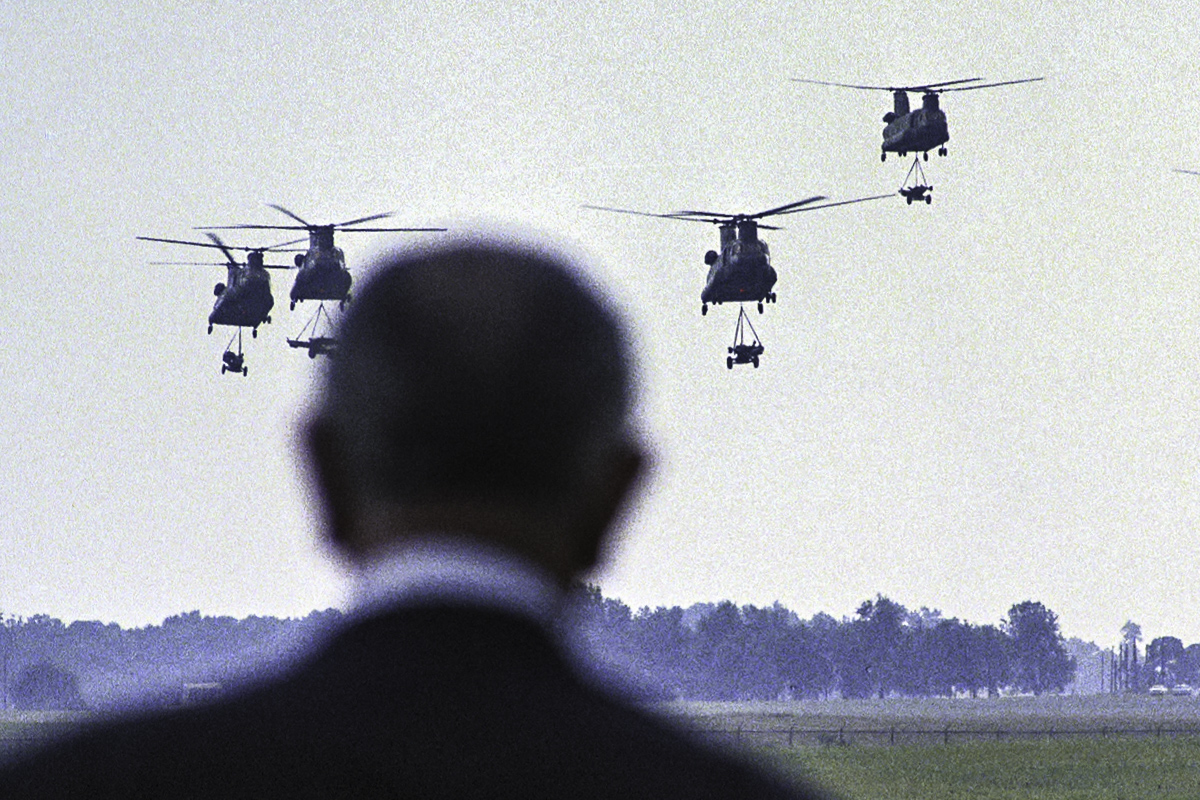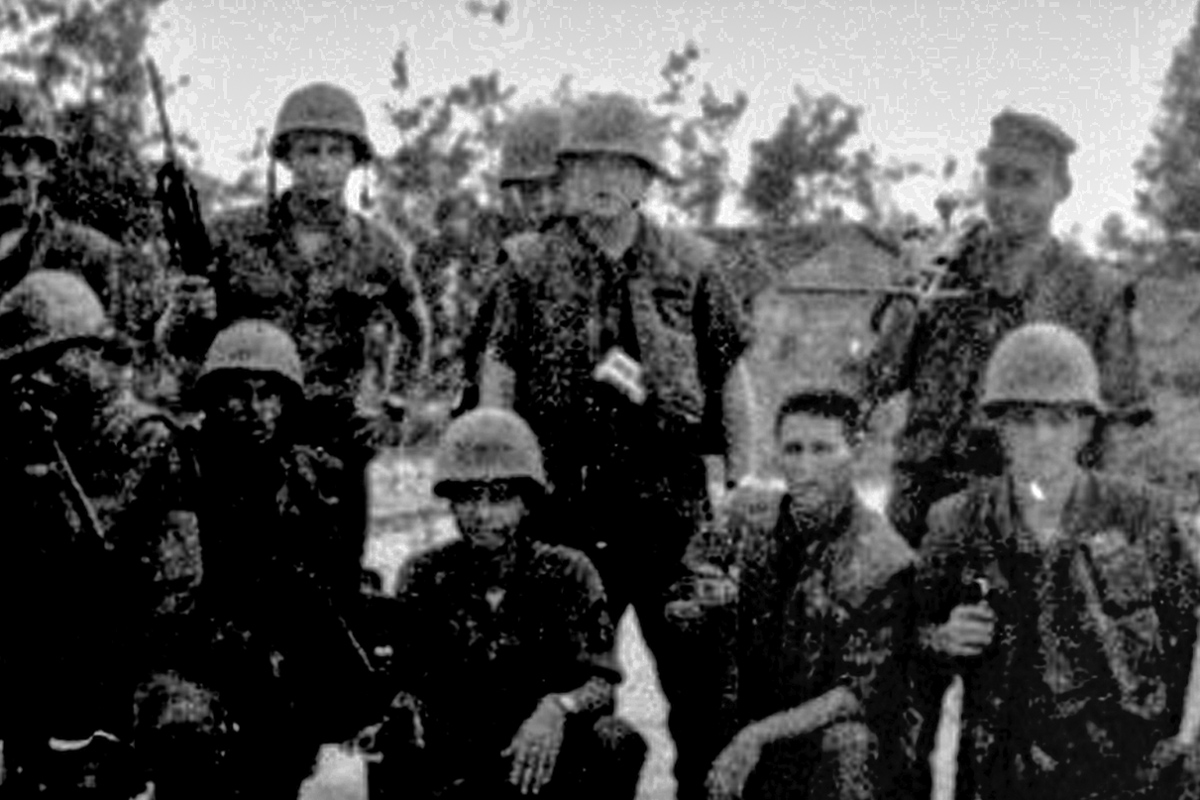
Episode 06 — Dealing With Your Baggage
Podcast: Play in new window | Download
Subscribe: RSS
SUMMARY: Vietnam veterans deal with their PTSD and speak of their desire to return to Vietnam.
TEASER — Pat Cameron: But the average 19-year-old, 18-year-old, kid that went over there didn’t come back the same… did not come back the same.
INTRO — Kent C. Williamson: For whatever reason, when I travel I prefer to handle my own baggage. Occasionally there’s an awkward moment in front of a hotel when the concierge calls the bellhop over to take my luggage and I have to politely wave them off while trying to grab all my bags, not leave any behind, and not knock anything over as I continue on my way. Often I’m overloaded with bags hanging from my shoulders and suitcases in tow, and if the family’s with me, pillows and stuffed animals jammed in my armpits. You know the guy I’m talking about. You’ve probably seen him yourself… well, that’s me. I long to be the guy with just a single bag and a wad of cash for tips, but most of the time, I’m not. I’ve got baggage, and lots of it. Of course, physical baggage, as messy as it can get, is often easier to carry than emotional baggage. When our veterans returned from Vietnam they often brought both. An over-stuffed duffle bag can be dumped onto the bed and sorted through or it can be tucked into a closet and forgotten about. But the emotional baggage that flew back from Vietnam with our veterans was a different story altogether.
Welcome to the By War & By God Podcast, I’m your host Kent Williamson. This show is a companion series to the award-winning documentary film By War & By God. It’s a place where we can go deeper into the stories of the lives of these veterans than we’re able to in the film. This season we’ve been telling the remarkable accounts of people who’s lives were forever changed by the Vietnam war. You’ve heard stories of heroism, and stories of tragedy… but you’ll also hear some amazing stories of reconciliation, and you’ll learn about a magnetic force that tugged and pulled and eventually drew these soldiers, medics, machine-gunners and crewman back to Vietnam for the purpose of serving some of the poorest of the poor in that beautiful country.
But before we get into the show, I need to tell you about Big Heaven Cafe. Big Heaven Cafe is the place to go to purchase the documentary By War & By God, so if you need a copy please click your way to Big Heaven Cafe dot com. That’s Big Heaven Cafe dot com and use the coupon code “podcast” to save one-hundred-thirteen-thousand-eight-hundred-and-fifty Vietnamese Dong… or five U.S. bucks on the film. And don’t forget that 20% of all sales of By War & By God from Big Heaven Cafe go to Vets With A Mission, the non-profit that since 1989 has taken nearly 1400 Vietnam Veterans back to Vietnam. Why do they go back? For healing and reconciliation.
In today’s episode, Dealing With Your Baggage, we’ll learn a little bit about a thing called PTSD. We’ll learn that trying to take the war out of the man is not an easy task. And today we’ll hear about the first hints of desire these men had of returning to the land called Vietnam. Alright… here it is…
Chuck Ward: When I finally had to face the demons of my Vietnam experiences that weren’t that bad…
Kent C. Williamson: This is Chuck Ward…
Chuck Ward: So just imagine the poor Marines and soldiers, 13 and 12 months of being on the ground and involved in activity and firefights and ambushes, you know, every two or three days. And just imagine how it impacted them, if it impacted me this way. The survivors guilt was a big motivator, a big influence, in my life. Because of the five of us on our high school bowling team one never went to Vietnam, four went to Vietnam, and I was the only one that came back alive. The other three were all killed in Vietnam. That bothered me a lot. You know, ‘Why me?’
Kent C. Williamson: What were the kind of injuries that you saw people coming back with?
Pat Cameron: Lost arms and legs…
Kent C. Williamson: This is Pat Cameron…
Pat Cameron: Most body injuries in the chest, they died. But, you know, quite a few amputees. And quite a few people that went crazy. They went absolutely in the loo-loo bins. And those were the ones they put on the street first… the ones that looked like they were healthy physically, but they weren’t healthy mentally. I don’t think I was healthy mentally. I mean to this day I take depression medicine. I’ve been taking depression medicine ever since, you know, for years… For almost 20 years now, I’ve been on depression medicine, you know. I just think war is hell. It’s just not good. You can’t put people in a battle. Now there are some gung-ho guys that wanted to go back more than once, and people that went back three and four times. I don’t know if it was just a rush for them, or what. But the average 19-year-old, 18-year-old kid that went over there didn’t come back the same. Did not come back the same. But I saw a lot of fear involved in people that came over, especially when they first get there. The first time you land in a foreign country, and you ain’t even been to a foreign country in your life… you’re 19 years old, and now you go in a foreign country and you don’t even speak the language, and then you got people shooting at you… How do you prepare for that?
Kent C. Williamson: Now they talk a lot about PTSD. Was that even on the radar back then? Was there any discussion about coming back and processing what you’d been through?
Cal Dunham: No. No, there was nothing like that…
Kent C. Williamson: This is Cal Dunham…
Cal Dunham: …at least to my knowledge. That’s not to say it wasn’t there, but I was young and I thought, “I’ll just suck it up, and I’ll get through this.” So I just tried to do it on my own. I didn’t really recognize it for what it really was
Kent C. Williamson: And how did that go? How did the “sucking it up” part work for you?
Cal Dunham: I could suck it up for a while, and then after Fran and I got married, just a few short months later we could be sitting in the apartment and I’d just start to cry, and I’d just say “Fran, I’m going out for a drive” and I’d go someplace and then I just… I wasn’t a heavy drinker but I’d just go to a bar and have some beers, or I’d go someplace and just park because I didn’t want her just seeing me sitting there and seeing me being melancholy and crying. So, you always kept a good face. You just buried it and kept a good face.
DROP IN — Kent C. Williamson: Post combat effects had been seen in other wars, but the term PTSD or post-traumatic stress disorder came about in the 1970’s as a result of the Vietnam War. The term was officially recognized by the American Psychiatric Association in 1980 in the third edition of the Diagnostic and Statistical Manual of Mental Disorders.
Bob Peragallo: PTSD is like good wine: the older it gets the better it gets.
Kent C. Williamson: This is Bob Peragallo…
Bob Peragallo: One of the signs of post-traumatic stress disorder is you don’t think you have it, and that should be at the top of the list.
DROP IN — Kent C. Williamson: In 1983, at the request of Congress, the U.S. Department of Veterans Affairs conducted a study into the prevalence of PTSD and other post-war psychological problems that our Vietnam Veterans were experiencing. The National Vietnam Veterans Readjustment Study consisted of hundreds of questions that sounded like these:
Questioner: Question H48D: Did you fire a weapon in a combat situation?
Question G48. Did anyone in your family or household ever spank or hit you hard enough that you had marks or bruises, had to stay in bed…
Question C3: How many times (if ever) have you been divorced?
Question R477. Have you thought that you lied pretty often since you have been an adult?
Question R426. When you were growing up, did you ever have any contact with the police or legal authorities for something they thought you had done, not including trouble with parking tickets?
Question K31. Did you have any problems at that time that you felt you couldn’t discuss with any friend or relative?
Question R452. Have you ever had sex with as many as ten different people within a single year (including your wife)? Homosexual or Heterosexual?
Question U2: Other than for weddings or funerals, have you attended services at a church or other place of worship since you were 18 years old?
Kent C. Williamson: The study found that over half of the of the U.S. participants in the Vietnam War experienced PTSD or partial PTSD symptoms. That’s over 1.7 million of our veterans.
Kent C. Williamson: How were you treated back home?
BREAK: But first… Did you serve in Vietnam? Did you suffer from PTSD? Or perhaps you had a family member who served and you’d like to ask them what there experience was like. Please record it on your phone and email it to me, or if you prefer typing, go for it. You can send it to me at Kent at By War AND By God dot com that’s Kent… that’s K E N T at By War AND By God dot com. I’ll look forward to learning about your experiences and we might just put a few of your stories into a future episode.
Now back to the show…
Kent C. Williamson: How were you treated back home?
Pat Cameron: I’ll be honest with you, as a corpsman I got more respect in the Marine Corps than I did anybody.
Kent C. Williamson: This is Pat Cameron.
Pat Cameron: The Marine Corps thought of us as salvation, especially the ones who had been over there and gotten back. I mean, once they knew that I had been over there it was just like… I wasn’t like an idol… but I was treated with the utmost respect and got many Thank You’s from the service side. I never did get any accolades from the public, from people. Never. Not even my family. My own family, you know, they just… But then again, I didn’t sit down with them and talk about some of the stuff I went through, Kent, I just wanted to keep it inside. But I kept it inside of me for 30 years. That couldn’t have helped me, I don’t think.
Bob Peragallo: There was no gratitude, no “Thank you for your service”, none of that. There was nothing, absolutely nothing.
Kent C. Williamson: This is Bob Peragallo…
Bob Peragallo: In fact, most people burned their uniforms when they got discharged. I never was that radical. I still was very proud of what I did in my service, but I sure was confused about it. All of a sudden I was the bad guy when I came home. I was as bad as the, in some cases worse than the enemy that we were fighting. So, you had to stuff it, you had to put it in a bag and stick it in a locker somewhere and lock it up, and not let any of that come out.
Kent C. Williamson: How did you deal with your Vietnam experiences?
Bob Peragallo: I try to describe it like an electrical panel that’s wired for 200 Amps, and Vietnam was 1,000 Amps, and it blew the circuits out, and so the only way that you were going to get through the emotional connection to your Vietnam experiences… you couldn’t reset the breakers. You kind of left them unsaid. You couldn’t process certain things, you couldn’t become close, you isolated yourself, you wouldn’t talk about Vietnam. What we now know, after all of these years is that the worst thing you can do for post-traumatic stress disorder is not talk about it. I was married probably, I’d say 8 to 10 years before I really told her my Vietnam experience.
Pat Cameron: I had one guy that I lost when I was over there, that was going to be leaving the next day to go home. So he didn’t make it.
Kent C. Williamson: Again, Pat Cameron…
Pat Cameron: How do you process that at 19?
Kent C. Williamson: How did you process it?
Pat Cameron: Oh, I don’t know, maybe about a half a fifth of liquor and sitting around with your comrades. We didn’t sit around and talk about somebody dying. We might for a minute, you know say we really hated that Jim didn’t make it. But if you processed it too much… the longer you were there the less you processed it. When you first get there you worked in fear; when you’d been there a while you worked through it; then when you get close to coming home you worried about dying. And I will live with it until I die. That’s just going to be the way it is
Roger Helle: When I was Medevaced out of Vietnam the plane took off, and sometimes the Communists would sit at the end of the runway and take shots at the planes that were taking off, and so what the plane had to do was they had to just get as high up as they could, as fast as they could.
Kent C. Williamson: This is Roger Helle…
Roger Helle: …and the plane banged over Da Nang Bay, and you know Vietnam was an incredibly beautiful country, and I’m looking at the emerald green waters of Da Nang Bay and the sandy China Beach and the mountains right there around Da Nang Bay, and as beautiful as it was at that point if I never ever went back to Vietnam again, if I never saw Vietnam again, that would be too soon. And for the next few years, four to be exact, I was kind of in an emotional, psychological wilderness of not understanding PTSD, not understanding survivors guilt, trying to wear a mask that I was okay, you know. I was proud of serving my country and being a Marine, so I wore that mask for about 4 ½ years. But unfortunately, my life began to unravel and you know the very thing that I said that I would never be growing up in a dysfunctional family – I had become an alcoholic, a workaholic, and my marriage was on the rocks. And then Jesus Christ came into my wife and I’s lives and God took away all the pain and memories of Vietnam, the nightmares. And the funny thing was, several months later something began stirring in my heart about Vietnam and I said to my wife “You know I’d like to go back to Vietnam now as a Christian; not as a Marine, not as a warrior, but as a Christian.” Well, that was several months later – April 1975 – Vietnam fell, and so from ‘75 to ‘88 I would ask missionaries that were in Asia, parts of Asia, what was going on in Vietnam. And nothing was happening in Vietnam, it was closed off to the outside world.
Bob Peregallo: I had a lot of guilt.
Kent C. Williamson: This is Bob Peregallo.
Bob Peregallo: It was a false guilt, but it was guilt of what I did in Vietnam. Everybody told me how wrong it was, that I was wrong. And these horrible accusations, you know what they are, they said all those things. So, I went into church and I heard the message of forgiveness and I responded and it was the beginning of me getting my head back together and breaking free from the whole Vietnam experience, and becoming a normal human being again, which took some time. It wasn’t an easy transition. It took some time.
Kent C. Williamson: So when did you start thinking about going back to Vietnam?
BREAK: But first… Two quick items. We’re giving away the soundtrack to the film By War & By God, so if you like the music, go to By War And By God dot com, click on the Soundtrack item on the menu and download all 8 tracks of this great score. The music was composed by Will Musser and we want you to have it for free. So go download it. Next… I want to say “thank you” for listening. You are the reason we create this show and I want to ask you to please tell a friend about us. There’s probably at least one person in your circle of influence who would like to hear this podcast, so please tell them about it. And if you can, go to iTunes (or wherever you get your podcasts) and leave us a review. Your words will help others know that this show is worth listening to. Okay, so that was three things, not two things. All right, let’s get back to the show…
Kent C. Williamson: So, when did you start thinking about going back to Vietnam?
Bob Peragallo: I wanted to be a missionary, so the first church I ever pioneered, the first thing we were going to do was send out missionaries and we sent a missionary couple to Honduras. This is back in the early ‘80s, about 1980, and the Sandinista war was going on in Central America. But I remember, like, I felt so fulfilled that I was doing something beyond just being “the church guy”. We were working in this orphanage and at night, I would… all of a sudden I would look up and over the other side of the mountain I’d see tracers, and I could hear gunships. And it just blew my mind, like ‘Wow, we’re this close to the war’. You know, we all heard about it and we were cautioned about traveling down the Pan-American highway, and here I am in 1980, and I’m looking at tracers going through the air, and it brought me right back to Vietnam, and in that process that’s where I first figured ‘You know, it would really be nice if we could do this in Vietnam.’ When I was in Vietnam I tried to imagine what it would be like if people weren’t trying to kill you. I just would always tell myself, “Man, I’d like to come back to this place sometime. This has got to be a beautiful place.” It’s just that it was ugly by war.
Kent C. Williamson: When you first thought of going back to Vietnam, what went through your head? This is Pat Cameron…
Pat Cameron: I think the first thing that went through my head was the fact of “Why in the hell am I even thinking about going back there?” That was the first thing I said, “What am I looking for? Why do I want to go back?”
Kent C. Williamson: So tell me about the first inklings of desire that you had to return to Vietnam. This is Cal Dunham…
Cal Dunham: Every now and then I would see something on TV with World War II vets, or Korean vets. They’d be interviewing them and so on, and they would talk about that they were going back to some kind of a reunion at a particular place in Europe or wherever it might have been, and I just started thinking about, you know, ‘I wonder how that would be for me if I did anything like that.’
Bob Peragallo: It was just like a tremendous magnet that wanted to pull me back to Vietnam. I couldn’t shake it, I couldn’t resist it.
Kent C. Williamson: Again, Bob Peragallo…
Bob Peragallo: My wife and family members and people that I knew, they had mixed feelings about going back to Vietnam, but I was just compelled. There was just something in me that was driving me from deep inside to return to that place, knowing that there was an uncertain outcome – how we would be treated, how it would work. It was just an uncontrollable impulse to return to the scene of the crime.
Phil Carney: To me, Vietnam personally felt unfinished.
Kent C. Williamson: This is Phil Carney…
Phil Carney: I never knew how to really articulate it. I never said it to anybody out loud, but it just always felt like there was something unresolved and unfinished. I never felt like there was an apology owed. I never felt like… I never regretted going. I never really felt guilty about being a Vietnam veteran, but there was just something in my own soul that felt unfinished about my Vietnam experience. I just always felt in my heart if I ever could go back to Vietnam it would be meaningful and important, and I didn’t know what that was. It just felt unfinished to me
CLOSE & CREDITS — Kent C. Williamson: Thank you for listening to this episode of the By War & By God Podcast from Paladin Pictures. Don’t forget to subscribe so you won’t miss an episode and please tell a friend about us. You can learn more about By War & By God at our website… By War And By God dot com. A reminder to use the coupon code “podcast” at Big Heaven Cafe to save some money on your copy of the film By War & By God. Also if you have an Amazon Prime account you can watch the film for free.
You can find me on Facebook or Twitter. Search for Kent C. Williamson and while you’re there search for By War & By God and like or follow us. Please email me your thoughts about the show or your own experiences. You can send them to Kent at By War And By God dot com.
The film will be at the Bare Bones International Film & Music Festival in Muskogee, Oklahoma on Saturday, April 22nd where it will screen at the historic Roxy Theatre. By War & By God will also screen on Friday, May 5th at the International Christian Film Festival in Orlando. So if you’re in either of those parts of the country, please go see it!
The By War & By God Podcast is written and produced by me Kent C. Williamson with Sound Design and Finishing by Ashby Wratchford. Our Audio Engineer in the studio is Steve Carpenter. Thanks also to my brother Brad Williamson who helped record the original interviews for the film.
Leslie Wood was the voice of the questions from the National Vietnam Veterans Readjustment Study in today’s episode. Special thanks to Greg Allen Morgoglione for his help and suggestions to make this show better. Thanks Greg! The By War & By God soundtrack was composed by Will Musser and don’t forget, for a limited time you can download the entire soundtrack for free at By War And By God dot com.
Thank you to the entire Paladin Team which includes Leslie Wood, Steve Carpenter, Dan Fellows, Steve Lessick, and Ashby Wratchford.
This podcast is a production of Paladin Pictures. Yep, Paladin is a film production company that sees the value in audio podcasts. Why? Because like is the case with By War & By God… the podcast can go deeper into the story than the film ever can. Paladin Pictures is committed to the creation of redemptive entertainment and thought-provoking cultural critique. Learn more about us and our films at Paladin Pictures dot com. That’s Paladin P-A-L-A-D-I-N Pictures dot com.
By War & By God is produced at the Paladin studio in the amazingly wonderful, beautiful little town of Charlottesville, Virginia.
And of course, thank you to our Veterans… those who returned… and especially those who didn’t. Like my wife’s Uncle Floyd. Thank you!
EPISODE 06 – DEALING WITH YOUR BAGGAGE
PLAYERS: Pat Cameron, Phil Carney, Cal Dunham, Roger Helle, Bob Peragallo, Chuck Ward, and host Kent C. Williamson
LINKS:
Big Heaven Cafe – Save $5 on the DVD of By War & By God with the coupon code “Podcast”
Diagnostic and Statistical Manual of Mental Disorders
Findings from the National Vietnam Veterans’ Readjustment Study
By War & By God Soundtrack – Download the original soundtrack to the film for free!
